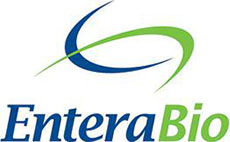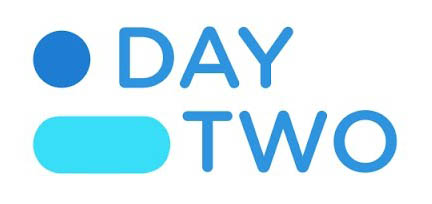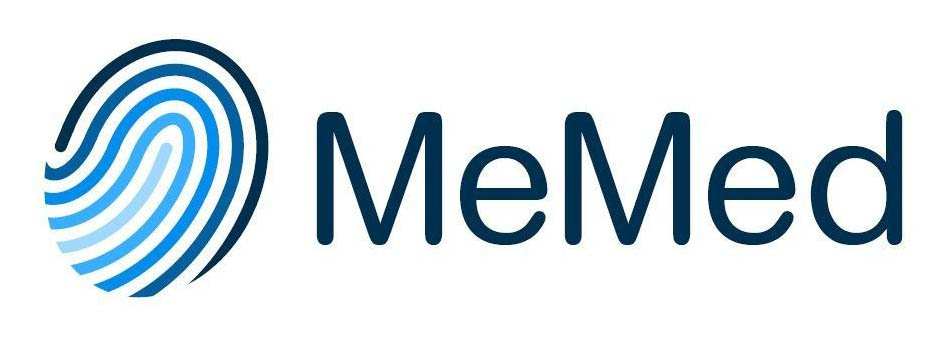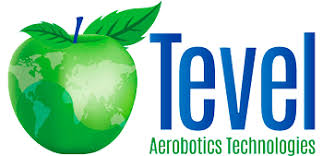This section of the website showcases a selection of The Maot Group’s investments from the past several years, both direct investments and those through partners. The Maot Group endeavors to make sound, secure, and diversified investment decisions, to work with companies that have strong management teams, and to avoid being caught up in the hype that is so prevalent in today’s market.
DIRECT INVESTMENTS
The following are direct investments made by The Maot Group. The Maot Group’s diverse portfolio is representative of its commitment to work with strong companies that demonstrate a commitment to excellence. These investments are listed below in 3 categories.
CURRENT

Addon Optics
Addon Optics has developed a disruptive, proprietary technology platform in the field of consumer optics. Its platform includes both hardware and software that, together, enable scalable production and distribution of lenses in a decentralized manner. Addon’s lamination method of production takes a pre-coated single vision lens and converts it into a high-end progressive lens with premium optical design within minutes. Current traditional processes to produce progressive lenses are based on a CNC process that is highly polluting and labor-intensive and involve a multiple step process that includes multiple coatings; the manufacture of such lenses take several days to complete.
Addon’s proprietary method is based instead on a fast, simple and environmentally friendly process that attaches a pre-coated single vision lens and a pre-coated flexible lens using Addon’s proprietary desktop-size application machine. Addon’s desktop Application Machine serves as the “printer” and its Flexible Lens as the “ink”. Addon’s production platform is widely applicable and can be used to produce multiple products, including clear progressive lenses, sunglasses with optical functionality and photochromic lenses.

Entera Bio
Entera Bio is developing novel oral drugs by utilizing its proprietary cutting edge delivery technology. This technology protects large molecules and peptides in the GI tract. Oral drug delivery is the most straightforwardstraight forward and user friendly approach to medical treatment. Entera Bio has key personnel with the relevant know how, experience and networks working together to enable rapid development of its products. The company has an experienced management team with more than 50 years of combined drug development experience. Entera Bio had a public offering in June 2019 and a secondary financing was completed in January 2020.
Orcam
Orcam is a leader in artificial vision technology. The company has developed a wearable, portable device with a smart camera to assist people who are visually impaired. The technology is intuitive and easy to use, and enhances the lives of people with vision loss. The developers of the technology include leaders in the field of computer vision and machine learning, engineers, hardware design experts, and more. The founders of this company, Amnon Shashua and Ziv Aviram, were also the founders of Mobileye. Orcam won the ‘Best of Innovation’ award for accessibility at the Consumer Electronic show in Las Vegas in January, 2020 for the OrCam Hear device–the world’s first AI-driven, wearable assistive technology device for people with hearing impairment.
Scopio
Scopio is developing a digital microscopy platform to allow a verity of diagnostic tests to be done in venues other than hospital labs—including doctors’ offices and even at home. Scopio’s novel platform, currently in development, will produce instant results at a fraction of the current cost. The technology combines unique optics and advanced software to create an inexpensive, high quality alternative to centralized labs.
Scopio has shipped models in the veterinary field in the US. The company has had several rounds of funding, substantial growth and an increase in valuation.
Tamir Bio
Tamir Biotechnology, Inc. has as its initial focus the human papilloma virus (HPV) as well as acute treatment of the Ebola virus (EBV). A clinical stage antiviral therapeutics company, TamirBio’s objective is to discover and develop new prophylactic and therapeutic drugs for the treatment of viruses and other pathological conditions. The company’s operations were restructured and the company was privatized during 2013 and 2014. As of early 2015, the company initiated its clinical activity in HPV. The company has licensed the ophthalmic version to a third party and is continuing in its phase II studies.

Brainvivo
Brainvivo is a pioneer in a new era of brain driven artificial intelligence and harnesses the architectures of living organism’s brains to solve real-world problems. Recently, Brainvivo has succeeded in classifying unlabeled data using their digitized brains, showing unsupervised brain-driven classification abilities from only 3-4 images per category. Maot Group were early stage investors.

DayTwo
DayTwo provides personalized nutrition and actionable insights that allow one to live healthier and maintain target blood glucose levels. Day Two does this by studying individual biometrics and lifestyle. The research was developed by the Weizmann Institute of Science and upon its completion, the research technology was licensed to DayTwo. Maot Group were early stage investors in May 2019.

MeMed
MeMed Diagnostics is passionate about translating the complex signals of the immune system into simple diagnostic insights that transform the treatment of infectious diseases. It has developed and validated a pioneering immune-based signature and point-of-care platform to distinguish between bacterial and viral infections – an indispensable tool to fight against antibiotic overuse and resistant bacteria – one of the biggest healthcare challenges today. Maot Group was the co-lead investor in June 2018.

Medicane
Medicane Health Incorporated, with operations in Canada, Israel, Portugal and Australia, is a fully integrated global pharmaceutical company that provides broad access to innovative and high-quality medical cannabis medications to patients around the globe.

Tevel Aerobotics Technology
Tevel has developed a technology which transforms fruit harvesting from a traditional manual process to enhancing the farmers’ productivity and provides modern service to care for the orchard. Tevel is combining airborne patented robotics platform, with sophisticated algorithms, to create the world’s leading autonomous concept for orchard harvest and management.
EXITED

Mobileye (MBLY)
Mobileye’s technology helps to keep the roads safer for drivers—by reducing accident risks to save lives. It’s a technological leader whose work is focused on processing visual information for driver assistance systems (DAS) through software algorithms, system-on-chips and customer applications. The company’s proprietary software algorithms and EyeQ chip (integrated into new car models since 2007) perform detailed interpretations of the visual field to anticipate possible collisions. Mobileye has the world’s largest machine vision development center, located in Israel, and has offices in several countries including the U.S., China, Germany, and Japan. The company had its IPO in July 2014, and in March 2017 was sold in its entirety to Intel.

Everspin
Everspin Technologies was a hybrid investment—first through Lux Capital and as a direct side by side investment. Investments were made in Everspin Technologies in 2008, 2010, and 2012. It is a global leader in developing and manufacturing magnetic-based memory. Everspin was spun out of Freescale Semiconductor as an independent company backed by prominent venture capital firms. A growing number of leading corporations have adopted Everspin MRAM to enable their most advanced products. Magnetoresistive Random Access Memory (MRAM) was a non-volatile computer memory technology. Unlike conventional memory technologies, MRAM uses nanoscale magnetic storage elements (instead of electric charge) to store information. Everspin’s MRAM technology was enabled by spintronics, an application of nanotechnology that exploits the spin of individual electrons. Everspin went public in October 2016.
LESSONS LEARNED
Oshadi
This company, listed in stealth mode during its years of operation was an Israeli private biotechnology company working on an oral carrier for protein-based drugs using nanotechnology. Because protein-based drugs are destroyed in the gastrointestinal tract, they are administered by injections or infusions, which can lead to side effects as well as poor compliance. The oral carrier allows the proteins to be absorbed from the gastrointestinal tract in their complete structure. The company was working on formulations for the treatment of diabetes (oral insulin delivery) and for cancer (DNase and RNase are protein enzymes that selectively inhibit proliferation of cancer cells). Regrettably, the company results faltered and the company closed in July 2019.
PARTNER INVESTMENTS
The following investments were made through LionBird and Lux Capital. LionBird specializes in start-ups and young companies and concentrates on the areas of technology, fitness, healthcare delivery, and retail. Lux Capital concentrates on emerging companies in the areas of energy, technology, and healthcare that have the potential to address global challenges.

Accelergy Corporation
Investments were made in Accelergy Corporation in August 2006 and in December 2010. Accelergy is developing the industry’s leading next generation, integrated coal-to-liquids technology, with high overall thermal efficiency, reduced greenhouse gas footprint, and lower unit costs than current routes. Accelergy utilizes advanced catalysts and state-of-the-art process technologies to transform coal and biomass into high quality, synthetic jet fuel. (Lux Capital)

amSTATZ
amSTATZ provides online business tools geared to fitness professionals. This web-based software helps those in the fitness professionals and fitness studios manage their business and interact with their clients easily. amSTAT’s cloud-based platform makes a whole range of business and communication tasks easy, from scheduling to payments to tracking clients’ progress and communicating with them. (LionBird)
Bento
Bento is a technology company that provides simple, elegant financial services solutions geared to the needs of small businesses. The company’s mission is to provide user-friendly expense management solutions tailored for small business needs that allow small business owners to concentrate on building their business and not on the administrative details. According to Bento’s management, “We want small business owners to spend more time on growth, products, and employees rather than sorting out bills, expenses, and unpaid invoices.” (LionBird)

Cerulean Pharma, Inc.
Investments were made in Cerulean Pharma, Inc. in May 2007, December 2007, July 2009, and November 2010. Cerulean is focused on significantly improving the efficacy and safety profile of existing and new drugs employing advances in nanotechnology. The company is targeting applications in oncology. Cerulean develops nanoparticle-based therapeutics for treatment of cancer. This approach allows for enhanced delivery of drugs, optimizing the location and rate of release while minimizing toxicities. In March, 2014 Cerulean filed for a $75 million IPO. (Lux Capital)

Fundbox
Fundbox is a technology company focused on helping small business owners overcome occasional short-term cash flow gaps. The company’s proactive credit underwriting provides small, short-term loans tailored to business-specific needs. In April, 2014 Fundbox came out of stealth mode and announced a $17.55MM Series A round of investment lead by Khosla Ventures, which will be used to scale the data operations and products, increase marketing efforts, expand the headquarters, and make strategic hires. The new round reflected a price per share that was 5.75x higher than the price per share in the seed round. (LionBird)

Genocea Biosciences, Inc.
Investments were made in Genocea Biosciences, Inc. in September 2006, February 2009, and December 2010. Genocea Biosciences was spun out of Harvard Medical School and founded in 2006 to commercialize key breakthroughs in vaccine discovery and development. Genocea has built a rapid screening platform to dramatically accelerate vaccine discovery and development. Genocea’s technology mimics the human immune system in vitro to identify key parts of infectious pathogens that elicit an immune response. In February, 2014 the company announced the closing of its initial public offering of 5,500,000 shares of its common stock at a public offering price of $12.00 per share. Genocea received net proceeds of approximately $61.4 million, excluding estimated offering expenses. (Lux Capital)

Genome Compiler
Genome Compiler Corp. is building the next generation of computer-aided design tools for synthetic biology. In the age of synthetic biology, we need tools for designing, debugging, and compiling genetic code; a genome compiler. The company’s vision is to democratize the tools of creation, unleashing innovation in biotechnology that will enable a more sustainable future. Genome Compiler was founded by a synthetic biologist out of Stanford and three software engineers coming out of Intel’s R&D centers in Israel. The company was initially incubated at Singularity University Labs, and now operates out of Tel Aviv, Israel. (LionBird)

Kala Pharmaceuticals
Investments were made in Kala Pharmaceuticals in November 2009 and October 2010. Kala Pharmaceuticals is commercializing the first-ever Mucus Penetrating Particles (MPPs) based on nanotechnology, developed at Johns Hopkins by Dr. Justin Hanes. Mucus acts as a natural defensive barrier for the body. The effectiveness of this natural defense mechanism impedes the delivery of drugs to many parts of the body, making it difficult to treat many diseases. Kala’s core technology platform comprises nanoscale particles coated with an FDA-approved polymer that allows encapsulation of a wide variety of drugs to rapidly penetrate mucosal barriers. These MPPs have tremendous potential for novel diagnostics, vaccines, inflammatory drugs and new therapeutics in the consumer health space. (Lux Capital)

Kurion, Inc.
Investments were made in Kurion, Inc. in February 2010 and November 2010. Kurion, Inc. is an advanced materials and technology company enabling a renaissance of clean, zero-carbon emission nuclear power by specifically treating the problem of nuclear waste. Kurion was founded after more than a year of intensive diligence, site visits, technology vetting, meetings, and consultations with numerous industry luminaries. The technology platform consists of: 1) a series of best-in-class isotope separation materials to allow for the removal of problematic radioactive isotopes from liquid waste streams; 2) an only-in-class modular “waste-to-glass” vitrification system (MVS®) to enable the first cost-effective permanent isolation of waste from the environment. (Lux Capital)

Luxtera
Investments were made in Luxtera in April 2009, December 2009, and September 2010. Luxtera has pioneered CMOS Photonics ™, which promises to enable the next generation of data—networking, computer, and consumer electronic products—overcoming the bottlenecks posed by copper’s bandwidth limitations. For the first time, Luxtera has enabled the construction of advanced optical systems in standard semiconductor manufacturing processes. Luxtera is the first company to combine complex optics and electronics together in a single CMOS chip, working with Freescale Semiconductor as its commercial foundry. The company’s proprietary design and fabrication process combines standard transistors for digital and analog electronic circuitry with passive nano-photonic optical structures. Luxtera’s CMOS Photonic transceivers offer better performance, increased reliability, and reduced power consumption at a fraction of the cost of traditional optical assemblies.(Lux Capital)

Ovuline
Ovuline is a Health IT company that uses clinically proven guidelines and technology to help couples conceive and have healthier pregnancies. Designed by Harvard scientists and fertility experts, Ovuline’s Ovia Fertility tracker uses data and machine learning to analyze a woman’s unique cycle and predict her exact fertile window, helping her and her partner get pregnant up to three times faster than the national average. Ovuline is also developing a pregnancy tracking solution, Ovia Pregnancy, to monitor a woman’s key health metrics during pregnancy, from weight gain and physical symptoms to emotional wellness and fitness. (LionBird)

PhysiMax
Five million sports orthopedic cases are treated yearly in the United States. PhysiMaxTM develops a web technology for human kinematic analysis, driving musculoskeletal preventive care loop and injury treatment. This technology allows trainers and therapists to assess motion patterns and assign supervised active treatment programs. End-users can now enjoy interactive programs at home to reduce risk for injury and improve performance parameters, such as power, endurance, balance, range of motion, and joint stability. (LionBird)

physIQ
physIQ, formerly known as VGBio, is improving healthcare through personalized predictive analytics that provide the earliest insight into deteriorating patient health. There is a much need for this approach, as the cost of chronic disease management consumes 83 cents of every healthcare dollar. Monitoring a patient’s physiology for daily changes, as in the case of physIQ, is the most effective way to proactively manage disease and track changes that would indicate an exacerbation of their chronic condition. The core function of the PhysIQ platform is to streamline the process of physiology monitoring by converting complex data into clear information. Pervasive wireless networks, small non-invasive sensors and ultra-low power consumption chips are now easily combined to enable the continuous collection of large amounts of human vital signs in an ambulatory setting. (LionBird)

Siluria Technologies
Investments were made in Siluria in October 2007. Siluria has developed an entirely new process for making nanomaterials using viruses as microscopic building blocks. The company is focused on developing new catalysts for valuable industrial chemical reactions. If successful, Siluria’s technology will allow natural gas providers to enter a multi-billion dollar chemicals market. Siluria’s technology allows for manipulation of catalytic materials at the nanoscale. The company is based on the work of renowned MIT scientist Dr. Angela Belcher, whose breakthrough research has been published in Nature, Science, and PNAS. The core technology utilizes directed evolution and other techniques to engineer special viruses called phages to interact with selected elements. Controlling the process allows for the growth and self-assembly of exquisitely structured nanomaterials, ideally suited to solve many of the technical problems associated with traditional catalyst materials. (Lux Capital)

StreamOnce
If you are having trouble getting your work teams to collaborate, exchange and generate data within one social or enterprise system, StreamOnce can help. Often, businesses find that their employees are working on multiple platforms and not coordinating well, or are reluctant to switch to new platforms. By connecting business systems to social systems, StreamOnce transforms how teams communicate with each other online. And because all of the relevant information for various systems is in one social place, team members can access and work with data with ease. (LionBird)
Sweetch
Diabetes rates continue to climb, despite the fact that it can often be prevented by modifying one’s lifestyle. Sweetch’s objective is to help prevent diabetes, specifically by preventing pre-diabetes from developing into diabetes. This work can potentially impact millions of lives—79 million adults in the U.S. have pre-diabetes and 63 million adults in Europe are affected. Within a decade, 70 percent of those cases are predicted to develop into diabetes. With the tagline “outsmarting diabetes,” Sweetch is a mobile platform that works with large-scale clinical outcome prediction as well as personalized, data driven wellness prevention to predict diabetes risk and drive long-term behavior changes. Sweetch anticipates that in the future it will expand to additional illnesses. (LionBird)
Telesofia
Telesofia cost-effectively produces personalized, interactive patient education videos in order to improve health literacy, patient engagement, and patient adherence to medical instructions. Founded by a team of medical doctors and Internet industry veterans, Telesofia Medical’s proprietary platform allows healthcare providers to automatically generate personalized educational videos for their patients in a way that is friendly, easy to understand, and accessible on any device. The platform is designed to support many applications, such as describing the proper use of their medication, surgical procedure, discharge instructions, and more. The fully branded videos are sent to patients via text or email or embedded in patient portals/apps. (LionBird)
Transphorm, Inc.
Investments were made in Transphorm, Inc. in April 2007, February 2009, and April 2010. Transphorm is redefining power conversion. Leveraging breakthroughs in modern materials and unmatched expertise, Transphorm’s ultra-efficient power modules eliminate up to 90 percent of all electric conversion losses. From HVACs to hybrids and servers to solar panels, Transphorm enables significant energy savings across the grid. The company was founded in 2007 and is headquartered in Goletta, CA. Power conversion works via rapidly switching circuits, which enable the transformation of electricity from one form to another. Transphorm’s efficiency breakthrough comes in the form of a revolutionary material known as Gallium Nitride (GaN), which switches at far higher frequencies than traditional components. This super-material, coupled with innovative circuit design, enables the world’s most efficient, most compact, and most cost-effective power conversion technology. (Lux Capital)

Tyto
Tyto is building an innovative platform and handheld device enabling anyone anywhere to perform an accurate physical examination for remote diagnosis. As primary care and pediatric healthcare consumers, providers, and insurers become incentivized to lower costs while increasing efficiency and accessibility, they are increasingly turning to telehealth for remote physician consultations via video platforms. Despite this need, online care solutions are still very limited, as they only enable medical history intake and general visual impression, missing one of the cornerstones of medical diagnosis—the ability to perform physical examinations. Tyto responds to this need with its novel, all-in-one handheld device, combining visual and auditory sensors with innovative guiding, navigation, and automatic reading capabilities that provide the ability to perform true-to-life physical examinations. (LionBird)
Visterra Therapeutics
Investments were made in Visterra (formerly known as Parasol) in August 2008 and August 2010. Visterra was founded by MIT professor Ram Sasisekharan. For years, Sasisekharan has been studying the biology of seasonal and pandemic flu. He has published recent high-profile papers on why certain people survived the 1918 flu outbreak, which killed more than twenty million people worldwide. This analysis has led to an understanding of how rapidly mutating pathogens (like flu) could jump from one species to another and potentially cause catastrophic consequences. Visterra’s core technology is based on breakthroughs in the understanding of influenza molecular biology. Parasol’s mission is to use this understanding of “antigenic drift” (strain variation) to improve seasonal flu treatment and “antigenic shifting” to develop prophylactic and therapeutic treatments for pandemic flu and other diseases. (Lux Capital)
